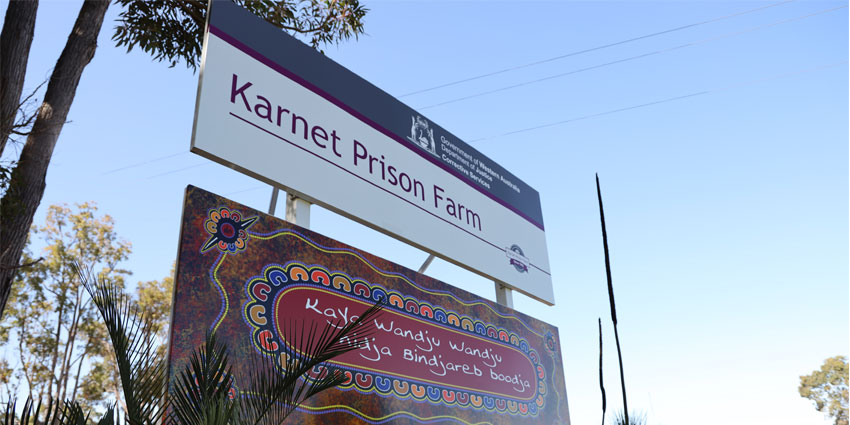
OICS said Karnet, one of the Department’s three prison farms, continued to excel as an essential “productive resource” supplying meat, dairy products and produce across the custodial estate.
Karnet currently produced almost all meat products (about 720 tonnes a year), milk (about 1.56 million litres a year), eggs (1.6 million a year) and about 50 tonnes a year of fruit and vegetables for the State’s prisons.
The minimum-security facility’s male prisoner workforce was entrusted to undertake the farming work and meet the prison farm’s production volumes and quality.
OICS said in its inspection report that “there is a lot to be positive about in Karnet”.
Its dairy, livestock, abattoir, market gardens and traditional prison industries such as the kitchen, laundry, workshops and grounds maintenance offered prisoners a raft of what OICS agreed were meaningful employment, training and rehabilitation opportunities.
In addition, some Karnet prisoners were approved for supervised work or activities outside the prison, “and for many Aboriginal prisoners, through the successful Carey Bindjareb program”.
OICS described the Carey program, a training course in a range of trades related to the mining, civil construction and associated industries, as “clearly a great asset for Aboriginal prisoners”.
OICS further pointed out that health, education, recreation, pre-release and other services and programs as well as peer support prisoners at Karnet were also operating well.
Department Director General Dr Adam Tomison said Karnet was a food bowl for the wider prison system that enabled its prisoners, who were mostly nearing the end of their sentences, to gain job skills for a positive reintegration into the community.
“The OICS report acknowledges Karnet Prison Farm is a well-managed prison,” Dr Tomison said.
“It continues to thrive as a vital producer and provider of fresh produce for the prison estate and a custodial facility focused on the successful re-entry of prisoners into the community, reducing recidivism and paving the way for a safer community.”
OICS said the prison had excellent relationships with a number of community groups, including the Shire of Serpentine Jarrahdale and Carey Bindjareb, and other government departments.
These led to community work projects for Section 95 prisoners and training opportunities.
Under Section 95 of the Prisons Act 1981, specially screened minimum-security prisoners could carry out approved external activities outside prison boundaries under the supervision of prison staff.
They included general maintenance, landscaping, gardening, small building restoration projects and clean-ups in the community as well as bushfire mitigation and emergency support.
Corrective Services Acting Commissioner Christine Ginbey said Karnet was committed to providing its prisoners with meaningful employment, vocational training and education opportunities.
“Management and staff are focused on assisting prisoners to develop job-ready skills to enhance their work prospects once released from incarceration,” Acting Commissioner Ginbey said.
“While successfully managing the consistent production of vast amounts of food for our prisons.”
OICS noted Karnet management, staff and prisoners were able to keep farming operations and food supply going during the period of COVID restrictions in 2022 when its inspection took place.
“Karnet’s ability to maintain much of its operations and service delivery throughout the pandemic is a testament to the dedication of its management, staff and hardworking prisoners,” she said.


